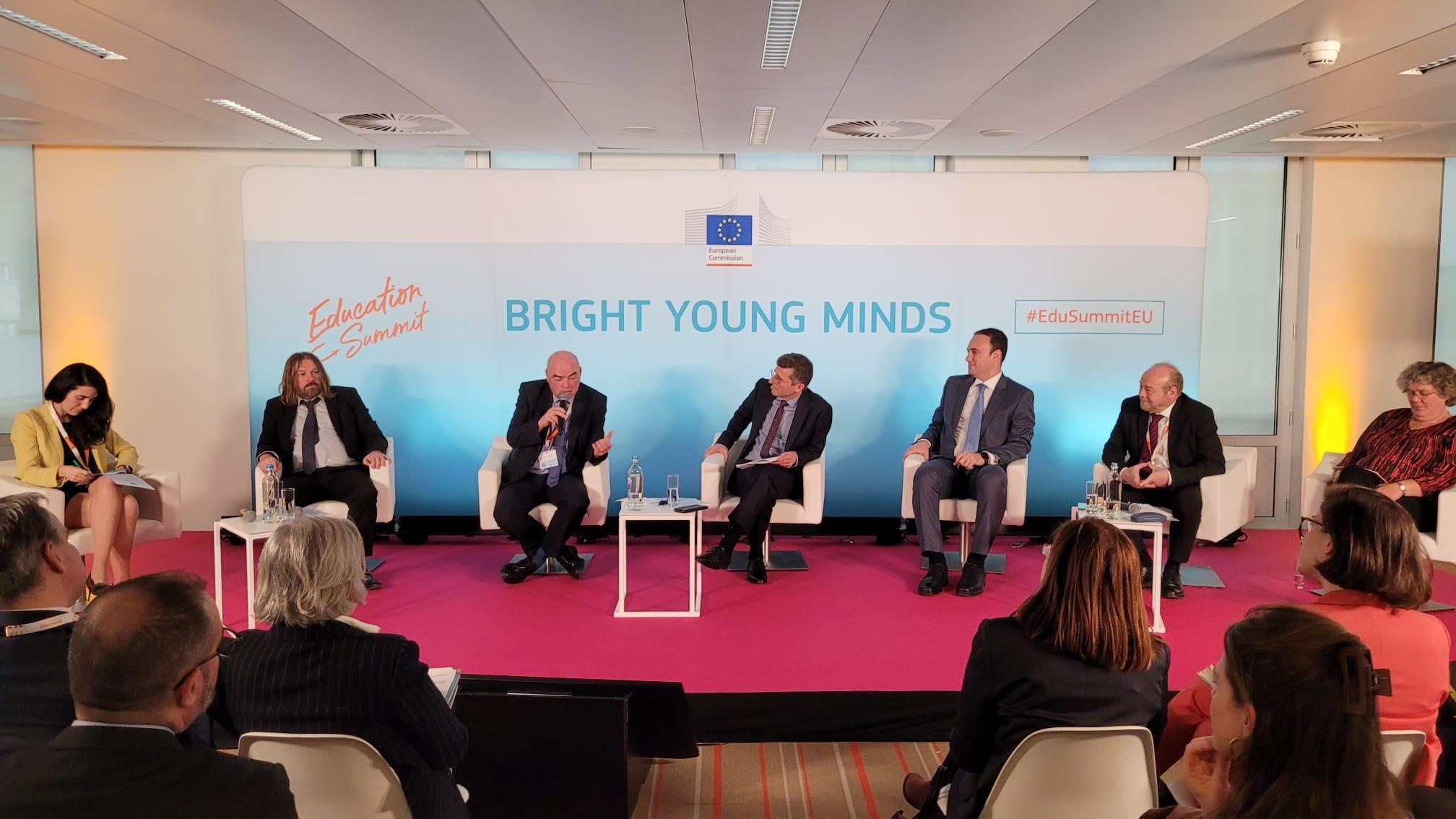Education trade unions at the 5th Education Summit: empowering and trusting teachers to shape a better future!
Published:
At the 5th European Education Summit education trade unions underlined that trusting teachers is crucial for tackling the challenges ahead
The 5th edition of the annual European Education Summit took place as hybrid event on 1 December 2022 under the motto “Bright young minds.” Mariya Gabriel, European Commissioner for Innovation, Research, Culture, Education and Youth, opened the Summit by highlighting the progress made within the European Education Area. Referring to the Education and Training Monitor 2020, the Commissioner positively stressed that early school leaving is declining and that the participation in early childhood education and care is on the rise. However, she acknowledged several challenges that have been exacerbated by the COVID-19 pandemic and cost-of-living crisis. The Commissioner outlined that not only is more investment required, but it needs to be tailored to specific needs according to a evidence-based approach. In this regard, she announced the key role of the new Learning Lab on Investing in Quality Education and Training, that seeks to bring different voices together and provide a platform for exchanging good practices to guide Member States. She stressed that equity in education still remains a major challenge, as inclusive learning environments should be enforced. In light of the Russian invasion of Ukraine, the European Commission promptly showed their solidarity, ensuring that displaced Ukrainians have access to education in Europe and providing learners with textbooks in Ukrainian thanks to the Erasmus+ funds.
The Summit had an extensive agenda of keynote speeches by European Commissioners, followed by several parallel high-level panels on education and training. These touched on the digital transition, the green revolution, the inclusion of Ukrainians in schools and VET, early childhood education, and implementing the European Strategy for Universities. National Ministers added their input to the panel discussion by including examples of good practices regarding implementing a whole school approach, promoting well-being, and reducing inequalities. In addition to ministers, members of the Parliament, and civil society, youth representatives also contributed to the fruitful discussion, in line with the European Year of Youth. These young representatives called for validating both formal and non-formal types of learning and recognizing the diversity of the education sectors.
Larry Flanagan, ETUCE President, joined the high-level panel on “Every Child Matters: Pathways to School Success.” Addressing European and national authorities, the ETUCE President first and foremost shed light on improving mental health, stressing that “teacher well-being is linked with pupils well-being: it is a pre-requisite.” He continued by highlighting that given the numerous challenges that teachers face today, ETUCE identified 10 key actions to raise attractiveness of the profession. “Not only salaries need to be more competitive, but it is important to invest in a highly qualified teaching profession, providing teachers with quality initial education and high-quality continuous professional development. This is essential in order to enable and equip teachers to tackle present and future challenges.” Finally, the ETUCE President called on politicians to "trust teachers and to enable empowerment and teacher agency". He concluded the speech by emphasizing the need for a broader “societal approach” within which teachers play crucial, but not exclusive role.
See the full programme of the European Education Summit 2022 here.